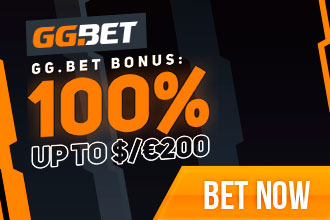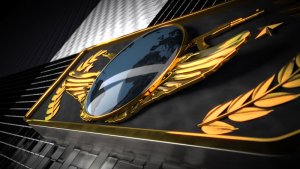ESL Gaming
ESL, formally known as Electronic Sports League, is an esports organisation who stage competitions across the world, who have quickly become the world’s largest esports company. ESL are the also the oldest esports organisation still in operation today, with the company based in Cologne, Germany, although they have offices at eleven different locations around the world. ESL launched back in 2000, starting out by establishing an online gaming league, as well as a gaming magazine. They also rented out servers for gaming tournaments and events. With over 3 million registered members at the time of writing, their standing at the top of the esports industry is certainly justified.
Having seen their productions more than double between 2012 and 2014, ESL’s Intel Extreme Masters Katowice quickly became the most viewed esports event of all time, with more than 100,000 in attendance, along with over one million watching on Twitch. However, in July 2015, Modern Times Group purchased a 74% stake in ESL for $86 million. Following this announcement, ESL declared that they were participating in “esports in Cinema”, which would see over 1,500 movie theatres across the globe broadcasting live esports action. The likes of Dota 2 and Counter-Strike: Global Offensive featured heavily from the ESL One Cologne and New York.

Today, the tournaments such as ESL Play, ESL Pro Leagues, ESL One and Intel Extreme Masters are among the biggest in the esports calendar, with popular games including Counter Strike: Global Offensive, Hearthstone, Halo, StarCraft 2 and Heroes of the Storm helping to make up such major events. ESL have also worked tirelessly to eradicate drug use from professional gaming, after a player admitted to using Adderall following the ESL One Katowice 2015. They have since worked with national anti-doping agencies and the world anti-doping agency in a bid to enforce anti-doping regulations. Random tests were implemented for the first time, with punishments for those guilty ranging from reduced prize money to disqualification, along with two-year bans from all ESL events.
ESL One
The “ESM One” was formally a professional gaming competition, with European teams competing in Dota 2 tournaments. At the time, it was the largest independent Dota 2 competition in the world, with teams battling it out for a prize fund of $156,000. The EMS One also featured Counter Strike: Global Offensive events. Having been renamed as ESL One, the league brought together teams and players from all over the world, again featuring both Dota 2 and CSGO, along with Battlefield 4.
The first ESL One event took place in Frankfurt, Germany back in June 2014, with Invictus Gaming defeating Evil Geniuses 2-1 in the final of the Dota 2 competition, taking home the majority of the $150,000 prize pool in the process. A year later, and having already staged a similar event the previous year, the ESL One New York 2015 took place, with Dota 2 and Counter-Strike again dominating proceedings. European team Vega Squadrom took first place in the Dota ESL tournament, while Natus Vincere won the CS:GO event, defeating Virtus.Pro in the final. The event would then move to Manila in 2016, where qualifying Chinese team, Wings Gaming, shocked Team Liquid to win the Dota 2 event.
Despite not being one of the main esports titles at ESL One events, Battlefield 4 has played a significant role in previous events, with Meet Your Makers winning the first ever tournament back in the Season Winter 13/14 in Cologne, before the likes of Fnatic claimed an unprecedented five consecutive titles at the ESL Studios.
Action has since returned to Frankfurt, before both Genting and Hamburg add to the list of host cities for the ESL One in 2017. Digital Chaos took home $125,000 after winning the Dota 2 event in Malaysia, while the world’s best players will head to Germany in October. Also in 2017, both Cologne and New York will host major Counter Strike: Global Offensive tournaments. With arenas such as the Barclays Center in New York, Arena of Stars in Genting and LANXESS Arena in Cologne having recently hosted ESL One events, attracting hundreds of thousands of spectators between them, the growth potential with such events is phenomenal.
ESL Play
ESL Play is one of the world’s leading esports platforms, providing players of varying abilities with tournaments and leagues in which to test their skills against opponents. Popular esports titles including League of Legends, Counter Strike: Global Offensive, Hearthstone, Warcraft and Rocket League make up major ESL Play events, with action taking place in the United Kingdom, North America, Asia and across Europe. ESL tournaments generally have entry requirements, with winning major events earning places in ESL Pro competitions, however they also have Go4 Cups which are free and open to everyone.
Prize pools for such events can range from between $500 and $5,000. PlayStation, mobile app, Windows 10 and Xbox One users are all able to take advantage of such tournaments, with the chance to win some hefty cash prizes, attracting more and more players all the time. Some of the less well-known games, such as Tricky Towers, Eternal, FIFA 17, S.K.I.L.L. and World of Tanks still regularly feature, helping to give the popularity of such titles a significant boost.
ESL Pro League
ESL also currently host nine official Pro Leagues for Overwatch, Counter Strike: Global Offensive, Rocket League, Gears of War, Guild Wars 2, Halo 5: Guardians, Hearthstone, Mortal Combat X and Tom Clancy’s Rainbow Six Siege. S.K.I.L.L. was also formally part of the ESL Pro League, however it was scrapped after just one season due to disappointing interest. It is undoubtedly the CSGO ESL Pro League that is the favourite among supporters at present, with the cross-continent tournament having finals in Los Angeles, Cologne and London.
Having raised the prize pool to $1.5 million in 2016, expectancy is huge for this year’s events. The likes of SK Gaming, Team Liquid, North and G2 Esports currently find themselves at the top of the standings in North America and Europe respectively, with the finals taking place in Dallas between the 3-4 June. Cloud9 are the reigning champions having defeated SK Gaming in the final last time around, however it is the Germans who will be the favourites to gain revenge this year. ESL CSGO is certainly set to reach new heights in the coming years.
Intel Extreme Masters
The Intel Extreme Masters are a series of major esports tournaments sanctioned by the ESL, which include events in StarCraft 2, Counter Strike: Global Offensive, League of Legends, Hearthstone and Quake Live. Despite having only been founded in 2016, the league has already played out ten seasons, with the 10th taking place in Katowice, Poland, having previously been held in Chengdu, Dubai, Hannover and Los Angeles, along with other cities.
The inaugural event took place in Germany back in 2007, with Team Pentagram taking home the spoils in the Counter-Strike competition, along with France’s Yoan “ToD” Merlo in Warcraft III. Season 2 saw the Intel Extreme Masters stage the World Championships in both Counter-Strike and Warcraft III, with Mousesports and Korea’s June “Lyn” Park coming out on top. Quake Live was added to the event in Season 4, while popular real-time strategy game, StarCraft 2 was introduced in Season 5, with Jung “AcE” Woo-Seo becoming World Champion.
League of Legends entered the equation in Season 6, with Russian outfit Moscow 5 winning the World Championship, ahead of more established names including Fnatic, Team World Elite and Counter Logic Gaming. A full list of games offered at the Intel Extreme Masters can be found below:
- Counter-Strike (Seasons 1-6)
- Warcraft III: Reign of Chaos (Seasons 1-3)
- World of Warcraft (Season 2)
- Quake Live (Seasons 4-5)
- StarCraft 2 (Seasons 5-6)
- League of Legends (Seasons 5-6)
The longest running pro gaming circuit in the world celebrated its return to Katowice in style for the 2017 World Championships, with over 173,000 fans attending the event over two weekends of action. With champions from both IEM Oakland 2016 and IEM Gyeonggi 2016 facing off against each other, prizes in League of Legends, Counter Strike: Global Offensive and StarCraft II were up for grabs, along with a total prize pool of $650,000. The likes of Flash Wolves, Astralis, Team Secret, Team Dignitas and home favourites, Pompa Team, were among the winners in one of the biggest esports events in history.
ESL National Championships
The ESL National Championships are region-specific ESL tournaments that are staged in various countries across the globe. The ESL Meisterschaft, the German Championship, is the oldest esports league in the world, having been founded in 2002. Meanwhile, the ESL UK Premiership has been the ESL’s biggest regional tournament since it began in 2010, helping to increase local esports competition in different areas. ESL National Championships are held for Battlefield 4, Counter-Strike, Dota 2, Halo, Hearthstone, Heroes of the Storm, Mortal Kombat, Smite, StarCraft 2, World of Tanks and Rainbow Six.
Current ESL CSGO champions include FMESPORTS from the United Kingdom, BIG from Germany, Outlaws from South East Europe, Risking Gaming from India and Torpedo from Scandinavia. Meanwhile in the world of League of Legends, MnM Gaming recently secured the 2017 National Championships in the UK, along with Mysterious Monkeys and Team Kinguin from Germany and Poland respectively.
ESL Technology
As well as esports and tournaments, ESL have pushed the boundaries when it comes to technology, creating the ESL Wire Anti Cheat Software, in a bid to combat online cheating, which has often been a problem in the industry. ESL integrated Wargaming.net’s API into their tournaments back in 2015, ensuring that player and game data is available through an application. Around the same time, they also released ESL Matchmaking, which is used to pair competitors together, based on their skill levels within a wide range of esports games. If that wasn’t enough, ESL have also been working closely with Microsoft, creating an Xbox app that will see ESL tournament systems utilised on Xbox live and Xbox One.
ESL on Facebook
ESL have also recently teamed up with Facebook in a bid to make esports action more accessible, with the hugely popular social media platform announcing a deal to live stream esports action from around the world on their site. Despite the streaming market being dominated by Twitch, this new deal includes around 5,500 hours of esports action from ESL tournaments, as well as 1,500 hours of original programming. Already having similar deals in place with both Twitch and Twitter, ESL are certainly doing their upmost to reach out to new fans.
Read also: Esport Gambling in Germany
























 EN Global
EN Global  BR Português
BR Português